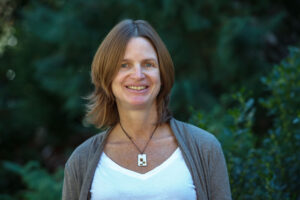The University of Georgia’s Center for Integrative Conservation Research has named Laura German its new director.
German is a professor of anthropology in UGA’s Franklin College of Arts and Sciences, and she has worked closely with CICR and the Integrated Conservation Ph.D. Program since 2012. Her current scholarship draws on critical agrarian, development and legal studies to elucidate the politics of land governance, with a focus on sub-Saharan Africa. As director, she will draw on a longer history of work on land-use and governance spanning the social and biophysical sciences and both applied and academic research traditions.
As the center’s director, German will support CICR’s mission to further collaborative training, research and problem-solving, while helping to position CICR within challenging conversations surrounding the role of conservation science and practice in ongoing forms of Indigenous marginalization and erasure. She also hopes to expand the center’s partnerships beyond academia as a means to strengthen the center’s relevance to ongoing efforts to address “grand challenges.”
Nate Nibbelink, German’s predecessor, has been CICR’s director since 2014. Nibbelink recently accepted a position as the associate dean for research in the Warnell School of Forestry and Natural Resources.
CICR was founded in 2007 and supports innovative conservation and sustainability research and training through its interdisciplinary collaborations with public and private partners. The work of CICR’s students and faculty responds to a key challenge facing conservation efforts: identifying the practices and policies that sustain ecosystems and serve human needs. For more information, see http://cicr.uga.edu/.
The Integrated Conservation Ph.D. Program was established at the University of Georgia in 2011 by CICR faculty affiliates. The ICON Ph.D. is offered through five UGA departments (anthropology, ecology, forestry and natural resources, geography, and marine sciences) and emphasizes the importance of communicating conservation research clearly to diverse lay and expert audiences. For more information on the ICON program, see http://icon.uga.edu/.








